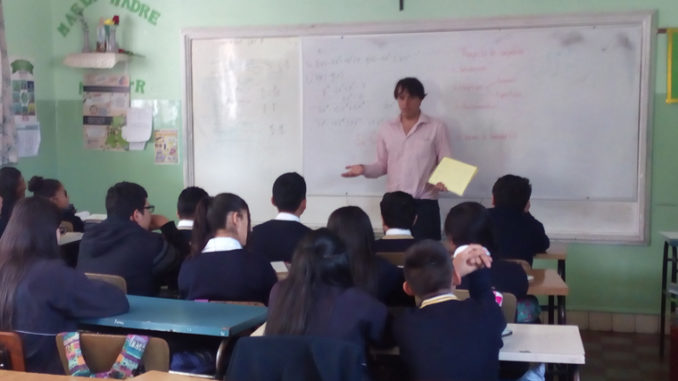
Published in El Pais, 18 September 2018.
Normally I write about technology from a financial perspective but today I had a unique experience that I feel would make an interesting read. Today I was asked to assist in a nutrition workshop in a school in Cochabamba to help educate children and adolescents on the dangers of eating unhealthily. Our goal was not to tell them what they should or should not eat, but merely inform them on what is in many of the foods in their diet so they can take informed decisions on what to choose to eat and drink. If they want to eat a hamburger with French fries and wash it down with a coke, they should know it is almost 1200 calories. And one hour of running will just burn 500 calories!
The work was interesting and I myself learned a few new things. When it came time to talk to the children it was a rewardable experience (after getting over my fear of speaking Spanish of course). As rewarding as it was though I was a little disturbed by the trend I was seeing. When speaking to the younger classes I found they paid the most attention compared to the older classes who just saw it as a break from their regular teachings. The problem with this was that while it was nice to see children caring about nutrition they had little to no purchasing power, as parents are often reluctant to give money to kids at that age and have little control over what they consume at home. The adolescents, who did bring money every day to buy in the break, were the ones who had little interest and come break time; they rushed to buy chips and sugary drinks at the school store. This was perfectly summarized at the end with all the garbage lying on the ground.
Schools in other countries such as Canada and the US try to combat this buy limiting the amount of junk food available in vending machines and cafeterias to at least have some control. Should something like that be instituted here in Bolivia? Maybe but I am not blind to the fact that these stores probably provide decent funding for the school and would understand their reluctance to do so.
I wish I had the solution to this problem, so do many other nutrition scientists. But the key takeaway for me was that some did listen to me, even the ones who brought money to school, and I know it does not seem like much but for now I’ll take it.



Be the first to comment